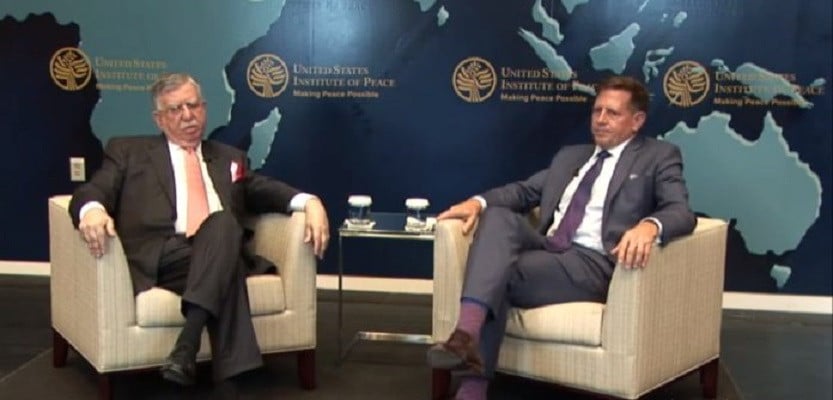
Federal Minister for Finance and Revenue Shaukat Tarin expressed hope on Thursday for a successful outcome of top-level negotiations between Pakistan and the International Monetary Fund (IMF), for putting the $6 billion Extended Fund Facility (EFF) back on track.
“I believe that the progress we have made to date is really encouraging and as we say, Inshallah I see this happening now in this visit,” the federal minister said in an interview with the United States Institute of Peace (USIP) on ‘Pakistan’s Economic Future’.
The minister added that the concluding sixth round of talks with the IMF were the most important part of his visit to the US, adding that many virtual meetings had already taken place while technical level discussions had also been concluded.
“Final meetings would be held with seniors at the IMF, including the managing director of the Fund,” Tarin added.
The minister said his government thought the IMF’s demand to increase power tariffs would trigger inflation and that this point was made during the technical discussion, further informing the body that the increase would be made in a gradual manner so that it does not have an abrupt impact on inflation.
Read Govt to provide cash subsidies to marginalised segments: Tarin
“There were some problems on the power side, including excess capacity, for which the government had to pay,” he said, adding that the performance of distribution and generation companies was also being improved. All this was being successfully negotiated with the IMF.
Economy and growth rate
Minister Tarin said that there was no stagnation in growth; Pakistan's economy would grow by over five per cent during current fiscal.
“Back in 1960s, Pakistan’s economy was the fourth largest in Asia. However, the nationalisation policy of Zulfiqar Ali Bhutto and 1979 Afghan War disrupted the economic growth,” he said.
“Prime Minister Imran Khan took over an economy that was struggling in 2018, with a $20 billion current account deficit, unsustainable fiscal deficit," the finance minister said.
He added that the premier had to go for a tough IMF programme besides taking some politically unpopular decisions including currency devaluation, increasing discount rate and increasing utility prices.”
He added that just as the country’s economy started consolidating and growing, the Covid-19 pandemic hit the world.
However, it was skillfully dealt with by the government as was indicated by far lesser human and property losses caused by the pandemic in Pakistan compared to the rest of the world.
He said the government during Covid-19 kept investing in two productive sectors, agriculture and industry and housing.
“During fiscal 2021, the growth was recorded at over four per cent as compared to a negative half per cent growth the previous year, showing V-shaped recovery,” the finance minister said.
“The country had around 60 per cent population below the age of 30 years who needed jobs, so the government revitalised agriculture, industry, exports, housing and believed that the economy would grow by over five per cent. However, at the same time, there was a need to make sure it was not overheated.”
Bottom-up approach
Furthermore, the finance minister said that the federal government was also ensuring that the underprivileged were not ignored and made to wait for the trickle-down effect of a positive economic growth, which has not reached them for many decades.
So the government utilised bottom-up approaches to ensure sustainable and inclusive growth.
“For this purpose, the government was providing interest-free loans to farmers and low-income families besides issuing health cards and giving technical trainings to help around four million households,” he said.
Tarin added that PM Imran has changed the country's focus from geo-security to geo-politics to ensure the economic welfare of people.
“This kind of change in focus means everything changes in terms of foreign policy, economic policy, internal security... and relationship with neighbours,” he said.
“Pakistan had good relations with all neighbouring countries, but there were issues with India, which needed to be resolved,” he added.
Pak-India relations
Minister Tarin further said that there was a fundamental issue between Pakistan and India and that was Kashmir, which he said was a disputed territory as per the United Nations Security Council resolutions.
“The current Indian government was not accepting its disputed nature and had taken some unilateral decisions, depriving Kashmiris of various privileges given to them,” he said. “Trade and economic operations between India and Pakistan were suffering.”
He added that PM Imran had offered India several times to take one step ahead, saying Pakistan would take two steps ahead. He urged the Indian government to respond positively.
“At the political level, there was a need to provide some space for economics and welfare of people of both the countries,” he said.
Afghanistan situation
The minister said that like all other counties of the world, Pakistan also wanted an inclusive government in Afghanistan and was also striving for it.
However, he cautioned that the Taliban were running out of cash and if the world did not come to support them on humanitarian grounds, there would be complete chaos, which would spill over to Pakistan and other countries.
“Since the Taliban are saying they would cooperate with the world, become a responsible country, take care of human rights, protect women's rights and pledged not to promote terrorism, we should help them step by step and encourage them to demonstrate improvements in their behaviour,” he said.
Tarin added that if the situation in Afghanistan worsens it would affect Pakistan the most.
Talking about the security situation in Pakistan, the finance minister said that Pakistan had fenced its border with Afghanistan, except a small strip near Chaman, whereas traffic flow to and from Afghanistan has been controlled and security forces were also taking necessary action to maintain security.
Pak-China-US relations
The minister said that Pakistan wanted to be friends with everybody including United States as well as China.
“Pakistan had a major strategic partnership with the US and its friendship with China would not affect its relations with the US. We believe we can work with both powers equally,” he said.
Tarin added that China had helped us build infrastructure but that does not mean Pakistan had become China-centric.
“We are open and want to do business with China, US, Europe, Japan, Korea. We are an open country. There should be no misconception,” he cleared.
On the China-Pakistan Economic Corridor (CPEC), the minister said that Pakistan needed to build infrastructure to attract foreign investments.
Since Pakistan was not in a position to build such a huge infrastructure, China provided funds and helped in building roads, railways, power generation and other infrastructure, that generated economic activity.
To a question, the minister answered that there were some projects where companies from China, United States and Pakistan were engaged in joint ventures and collaborating with each other. This cooperation could be enhanced, he added.
On the matter of Gwadar Port, the minister reiterated that the port was not China-centric, saying it was open to everybody including Japan, South Koreaa and Europe.
“If anybody wants to have business with African countries and the Central Asia States, Gwadar was the right place,” he said. “The government wanted to attract investment from different counties and that was why it had developed infrastructure.”
He said Gwadar was a big opportunity as it is a unique territory covering the Gulf as well as Central Asian republics, whereas China was also not at much of a distance.
“Any country can come and invest and Pakistan has been making efforts to attract people from different countries to invest in economic zones and was also approaching overseas Pakistanis for this purpose,” he said,
Read more Tarin asks Sindh, Balochistan to stabilise wheat prices
“However, peace and stability in Afghanistan was needed, adding that a stable Afghanistan was good for all," he said, urging the world community to help make Afghanistan manageable for everyone's benefit.
FATF
The minister added that Pakistan had met 26 out of 27 Financial Action Task Force (FATF) conditions, whereas the 27th condition was also half met.
“Any other country meeting such conditions would have been removed from the grey list; however Pakistan was being punished by some countries for different reasons, not economic ones. Frankly, it is the same mantra that Pakistan is a terrorist state. Pakistan encourages terrorism,” he said.
He added that a country that lost 80,000 people and suffered $150 billion losses and has been suffering for 40 years is being blamed continuously.
The minister added that no amount of hurdles would stop Pakistan becoming "economically great again", and one of the top countries in Asia first and then the world.
He said it will be an achievement if Pakistan became one of the top countries in Asia economically in his lifetime. "This is my motivation,” he said.

1732090022-0/Elmo-and-Amelia-(1)1732090022-0-165x106.webp)
1725523665-0/Minecraft-Movie-(1)1725523665-0-165x106.webp)

1732089759-0/BeFunky-collage-(75)1732089759-0-165x106.webp)
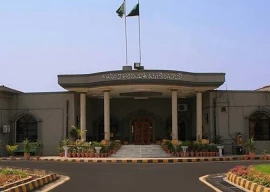
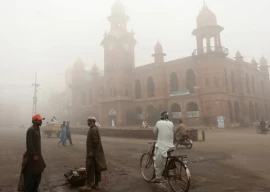

1732094891-0/Copy-of-Untitled-(52)1732094891-0-270x192.webp)

1732090878-3/Untitled-design-(22)1732090878-3-270x192.webp)
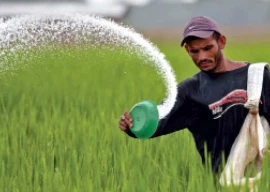
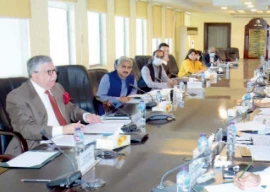
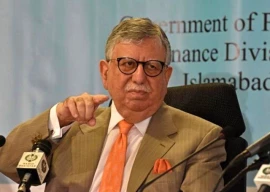






COMMENTS (2)
Comments are moderated and generally will be posted if they are on-topic and not abusive.
For more information, please see our Comments FAQ